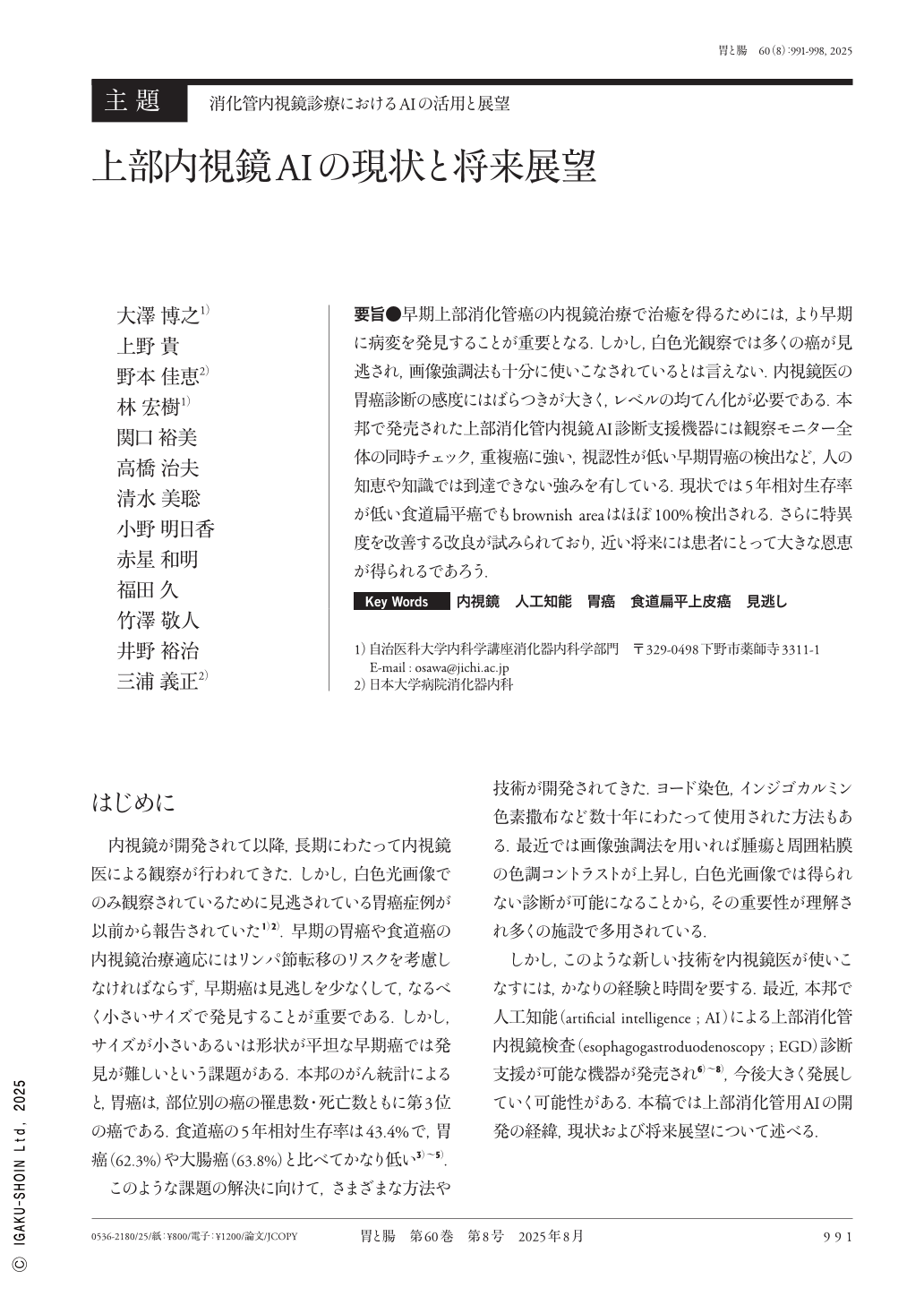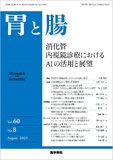Japanese
English
- 有料閲覧
- Abstract 文献概要
- 1ページ目 Look Inside
- 参考文献 Reference
要旨●早期上部消化管癌の内視鏡治療で治癒を得るためには,より早期に病変を発見することが重要となる.しかし,白色光観察では多くの癌が見逃され,画像強調法も十分に使いこなされているとは言えない.内視鏡医の胃癌診断の感度にはばらつきが大きく,レベルの均てん化が必要である.本邦で発売された上部消化管内視鏡AI診断支援機器には観察モニター全体の同時チェック,重複癌に強い,視認性が低い早期胃癌の検出など,人の知恵や知識では到達できない強みを有している.現状では5年相対生存率が低い食道扁平癌でもbrownish areaはほぼ100%検出される.さらに特異度を改善する改良が試みられており,近い将来には患者にとって大きな恩恵が得られるであろう.
The advancement of endoscopic therapy has increased the importance of small cancer detection, although white light imaging has missed a lot of malignancies and image-enhanced endoscopy has not been adequately mastered by all endoscopists. The diagnostic sensitivity of early-stage gastric cancer varies among endoscopists, and an equal level of diagnostic ability is thus required for patients. Artificial intelligence support systems published in Japan provide strong points such as simultaneous observation of the whole monitor, easy detection of malignancies with low visibility, and double cancers without fatigue. The AI system detects almost 100% of early esophageal squamous cell cancer cases, which have a low 5-year survival rate. In the future, the improvement of specificity by AI systems will contribute to the diagnosis of a lot of cases of esophageal or gastric cancer.

Copyright © 2025, Igaku-Shoin Ltd. All rights reserved.


